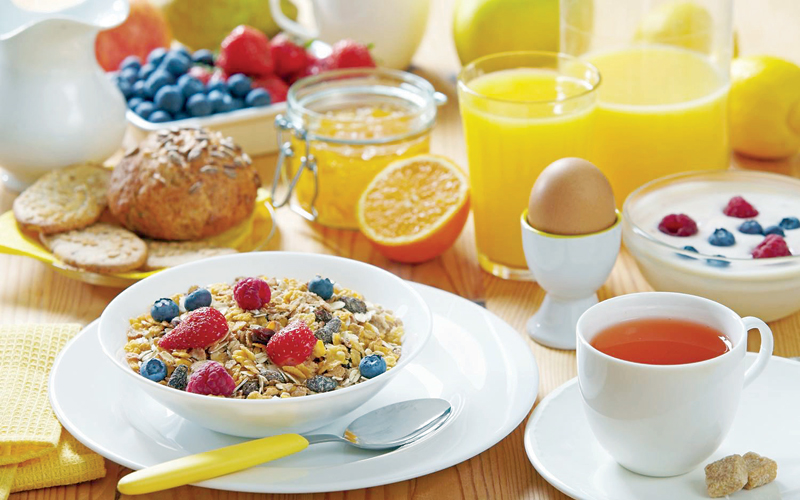

SIGNIFICANCE
• It provides nourishment for the day’s fast.
• Eating right suhoor reduces thirst and appetite during the day.
• Prevents headaches, nausea, trembling and signs of low glucose.
• It provides energy to perform your day’s activities.
• It prevents the person from feeling lazy or in need of sleep and helps in right worship.
HOW DOES FASTING AFFECT THE BODY: As during fasting no food or water is consumed from dawn till sunset, the body uses its stores of carbohydrates (stored in liver and muscles) once the calories from the meal consumed are used up. Right diet can help one lose weight and reduce triglycerides and cholesterol significantly. Choosing deep fried foods, creamy and sweet options with a lot of sugar and fats does not fetch health benefits of fasting.
WHAT TO EAT AND WHEN TO EAT: Eat suhoor prior to 30 to 45 minutes of fajr prayers. There is a wrong practice of eating heavy meal in the name of suhoor at late night post Taraweeh and sleep. It causes acid reflux with symptoms of heartburn, nausea, bloating and belching which in turn makes fasting during the day uncomfortable.
Take a light and healthy meal comprising complex carbohydrates and healthy proteins and water to keep you active throughout the day. Foods like whole wheat breads, oats, quinoa, ready to use whole grain cereals with milk, eggs, lentils and low fat dairy can complete the suhoor. It is a significant and valued meal in people fasting with diabetes. So it is important to take it on right time, choosing low glycemic index foods.
IFTAR: It is the most privileged meal, it’s the time when family and friends celebrate the special season of Ramadhan together . Try to keep it as simple as it can. Breaking the fast with dates and water gives instant energy, adding variety of fruits or fresh juices adds up to nutrient boost. Try to avoid deep fried foods and spices as it delays absorption and disturbs digestion. Instead choose some whole grain cereal, sprouts, porridge or soups with lean meats and vegetables.
Haleem or Harees, a well known dish of Ramadhan, can be made a healthier option by cutting down use of excessive ghee, oil and choosing fat trimmed lean meats so that it becomes easily digestible and nutritious. Harees cereal, oats, bulgur options can be used in innovative ways to make the dish.
After breaking the fast, meals vary between different cultures but try to make sure foods you eat are healthy and nutritious avoiding junk foods. Try to finish you meal before (Taraweh) special prayers offered in Ramadhan. Eating heavy meals late night causes weight gain, sleep disturbances and aggravates acidity. It causes wide sugar fluctuations in people with diabetes; instead have a glass of milk, laban, yoghurt or a serving of nuts, if required just to quench your cravings. Drink enough water as it is hot summer and long days’ fast of almost 15 hours, limiting caffeinated and carbonated drinks.
Some of the common health problems faced during Ramadhan is gastritis, diarrhoea, constipation and hypoglycemia .Right eating practices can prevent these health problems.
Remember you are never late to make a healthy change on your table. Ramadhan doesn’t mean overeating and feasting. Focus on healthy food choices which gives strength needed to perform act of obedience, worship and increase your stamina to do the day’s work.
— Sumaira Fatima
Dietitian & Diabetic Educator
Oman Observer is now on the WhatsApp channel. Click here



